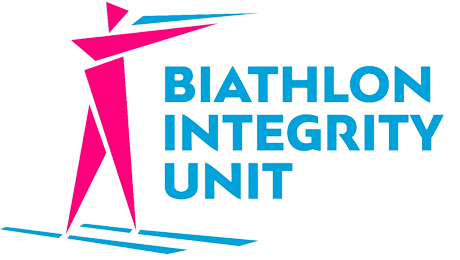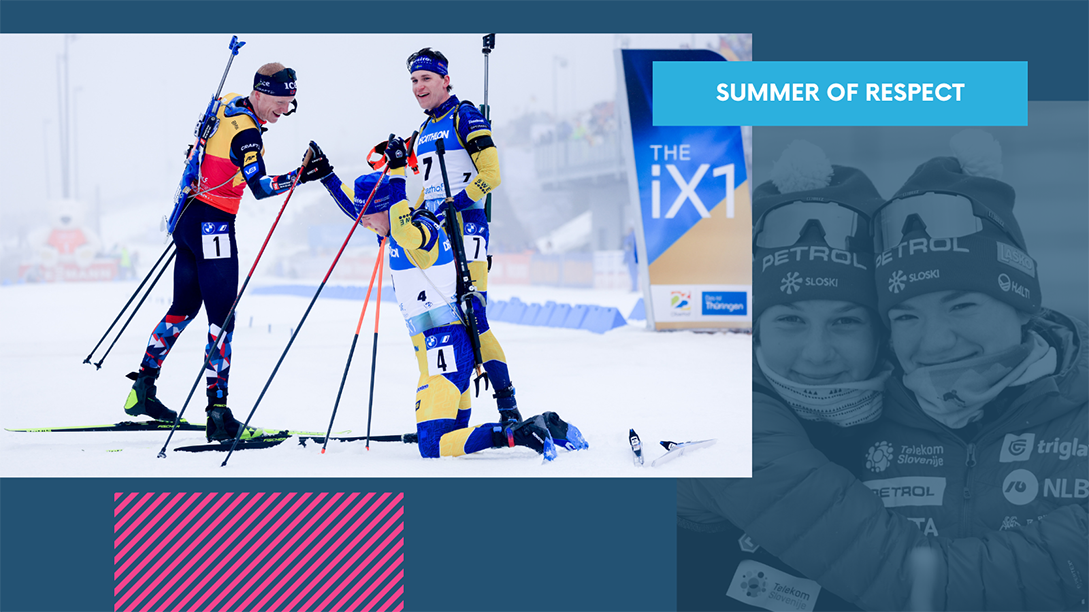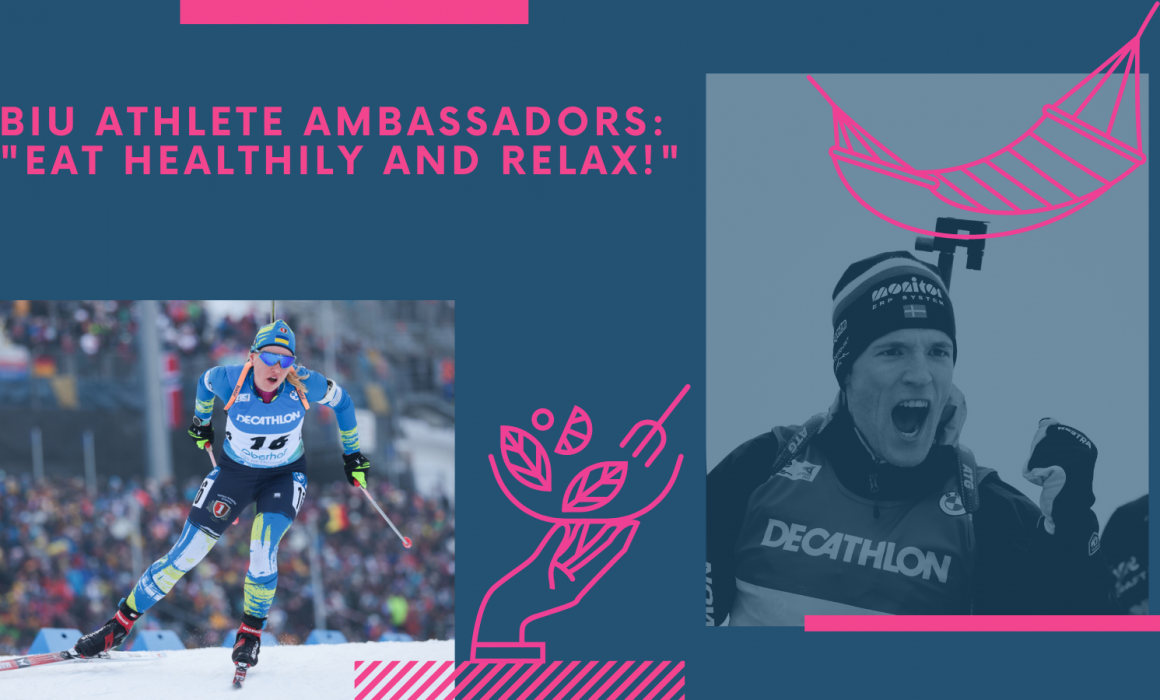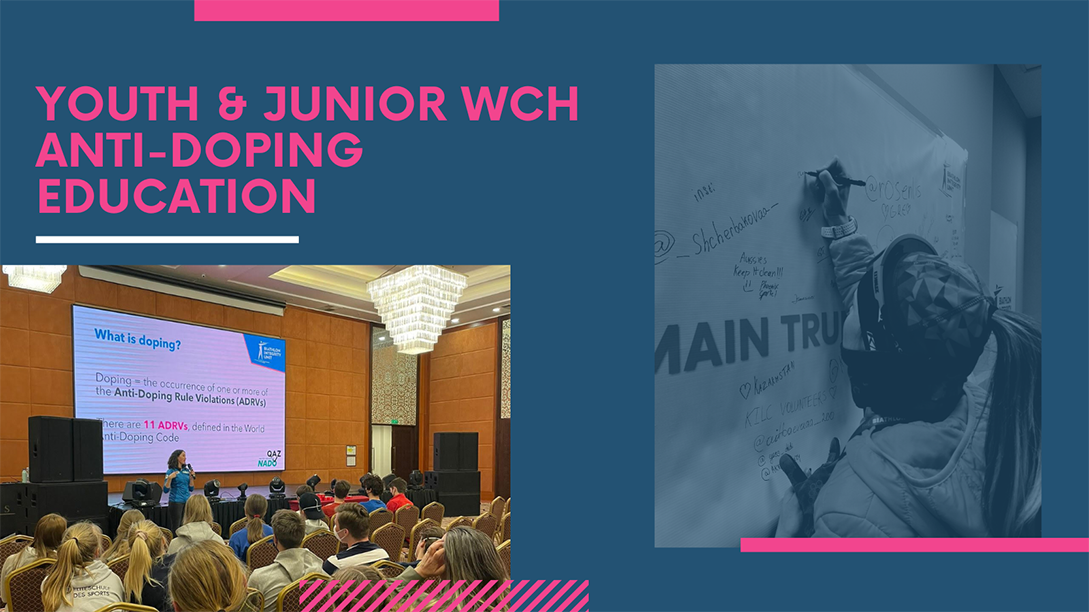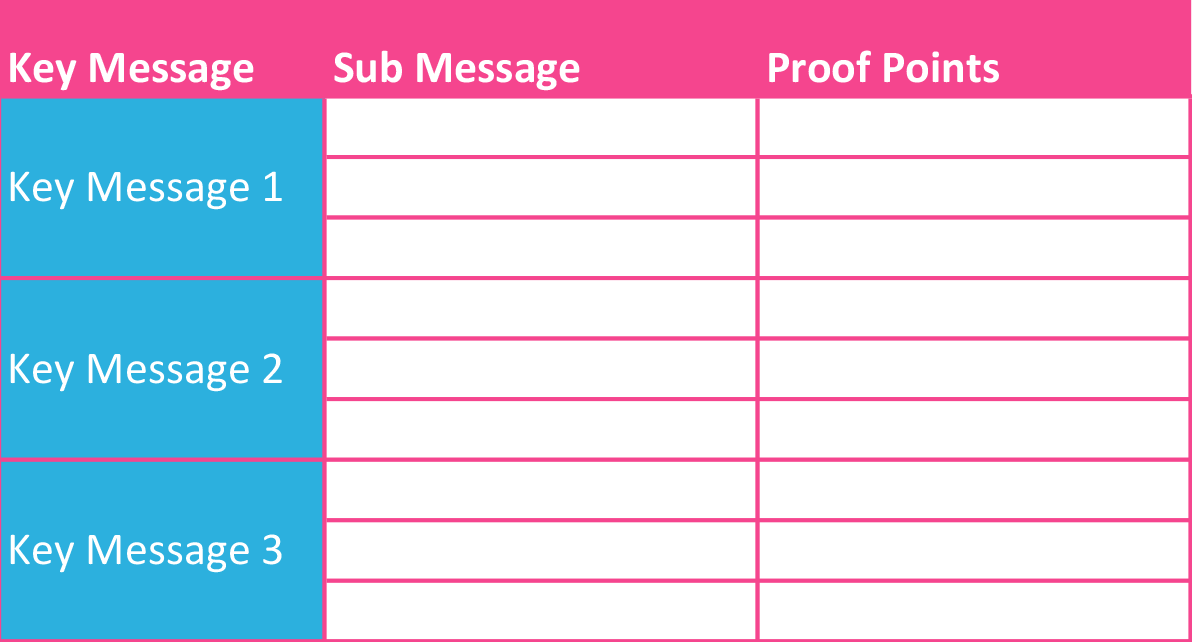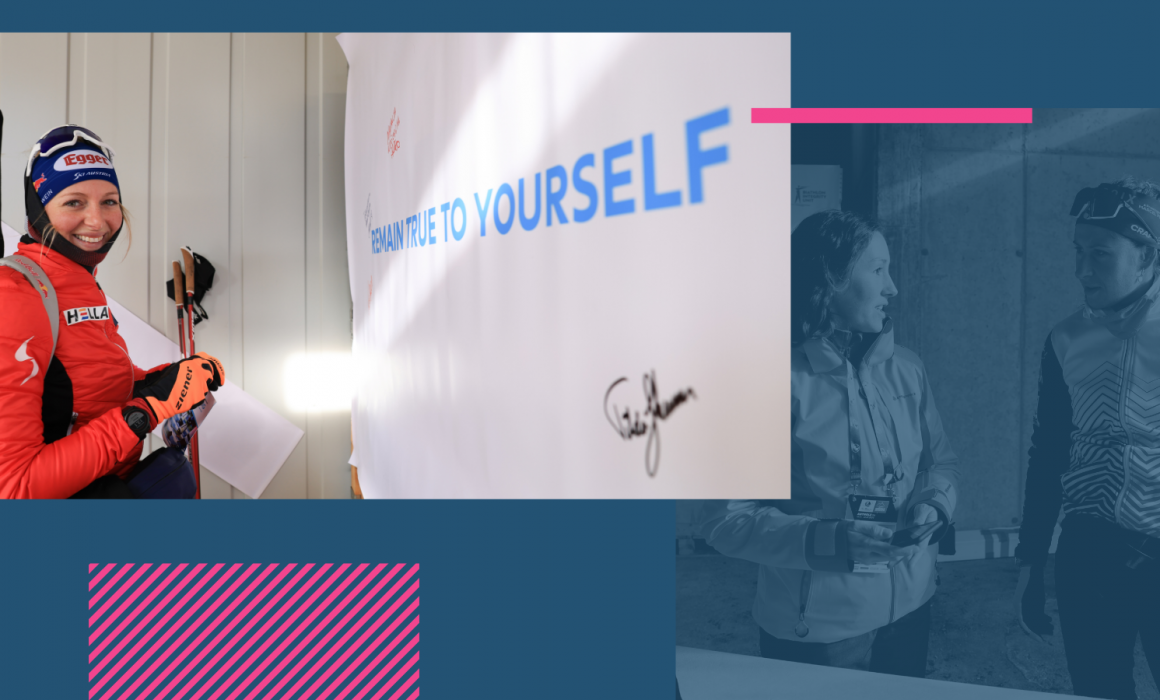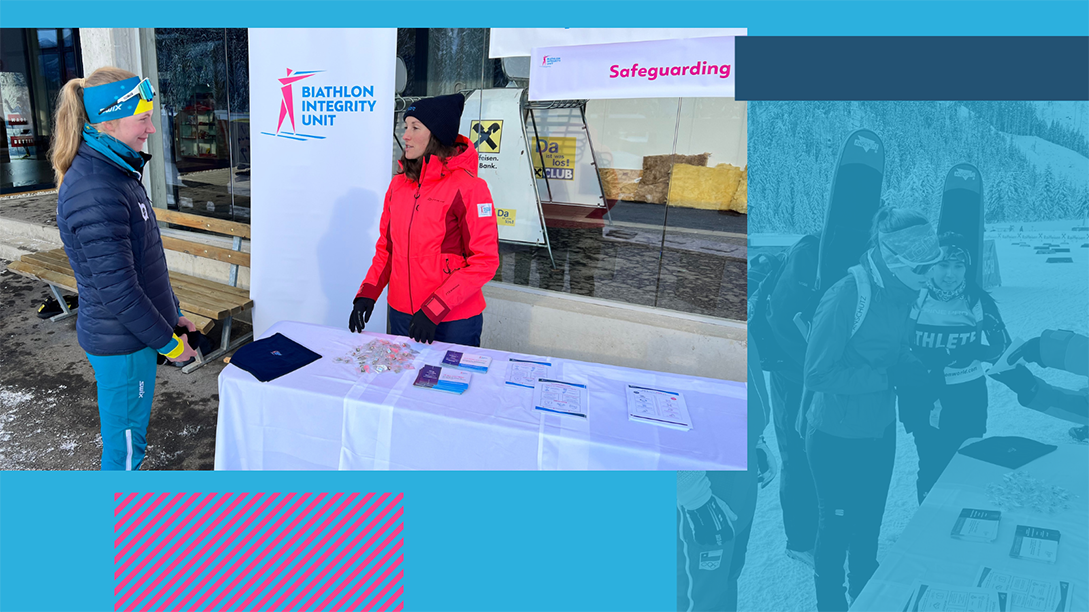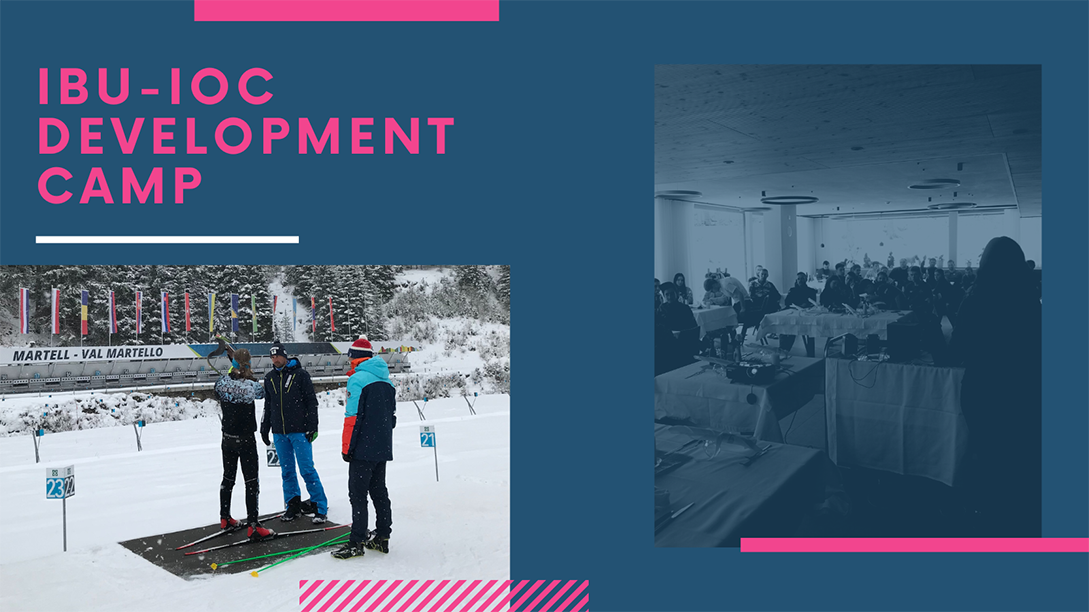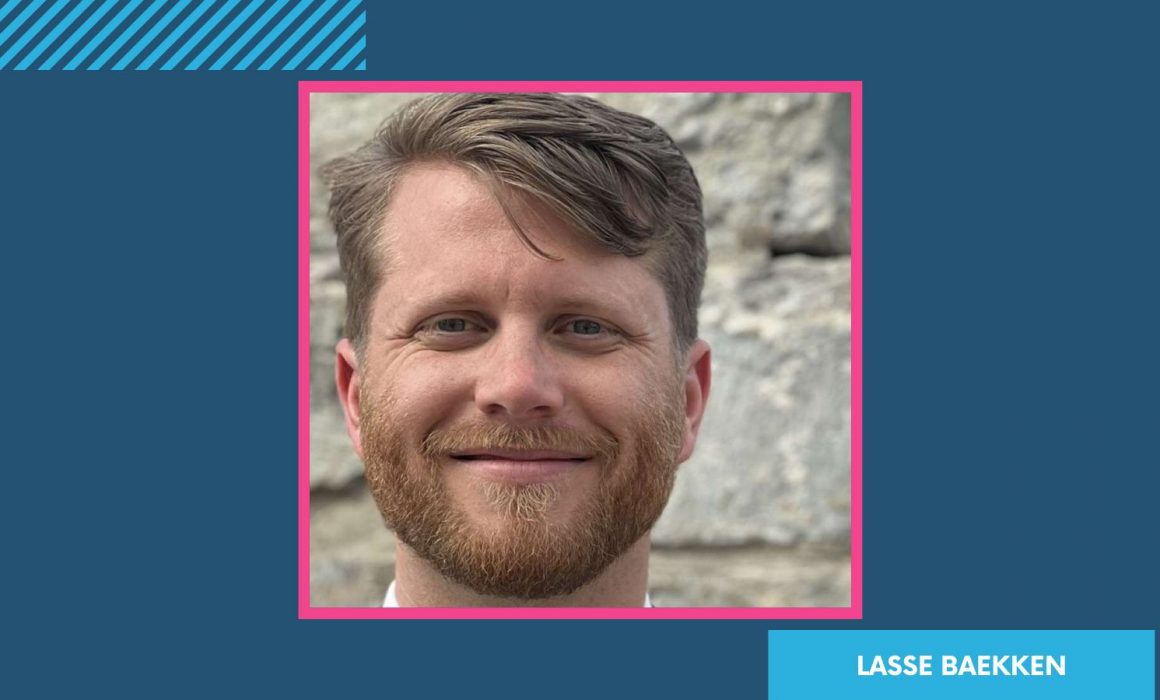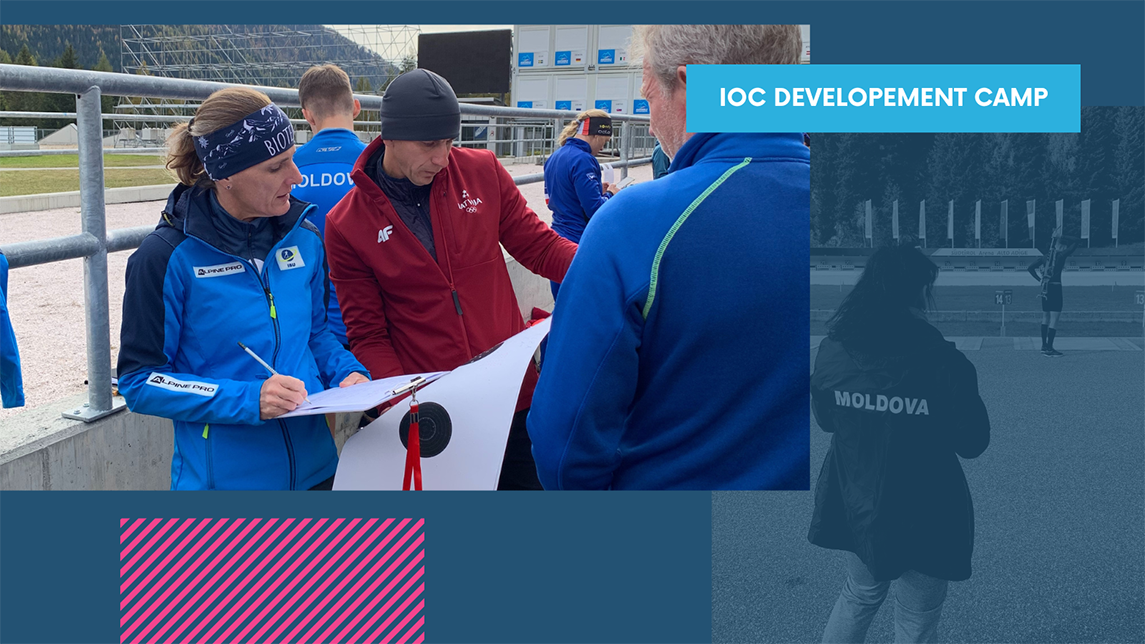BIU launches Summer of Respect
The BIU is launching Summer of Respect, a campaign aimed at helping to ensure the integrity of Biathlon by encouraging biathletes to show respect for the things that matter most in our sport.
Respect has been defined as: ‘Treating others as you would want to be treated. This reflects the qualities of being polite, kind, courteous and tolerant of others’ views, cultures and beliefs’ (https://www.i-value.eu/toolkit.html). It also includes respect for yourself and your body, for other people, for rules and regulations, for sport and the environment, according to the International Olympic Committee.
Through the Summer of Respect campaign, the BIU will raise awareness of what it means to show respect in the context of Biathlon’s integrity rules. The IBU’s Safeguarding policy says: “IBU recognises that every member of the Biathlon family […] requires, commands, deserves and has a right to respect, safety, dignity, welfare and protection.”
Athletes should respect:
- The rules (as set out in the IBU Integrity Code and other rule books, including the World Anti-Doping Code)
- Coaches
- Teammates and opponents
- Spectators
- Officials
- Themselves (self-respect)
The Summer of Respect campaign will comprise a range of initiatives, including regular social media posts and an athlete outreach stand at the Summer Biathlon World Championships in Brezno-Osrblie, Slovakia on 24-27 August.
Some great examples of respect in biathlon include:
During the COVID epidemic, positive tests in the Japanese coaching team and the quarantining of close contacts meant that Japanese athletes had no one to help them during the zeroing of a men’s relay race in Oberhof. US coach Armin Auchentaller stepped in to help by assisting Japanese athletes as well as US athletes, enabling them to compete to the best of their abilities, despite the absences.
Reflecting on the incident, Auchentaller said: “What I am most satisfied with is that from then on, we made new friendships across two teams. They really appreciated our willingness to help, but I have to say that we never had a doubt about it: such situations are really unforeseeable, and I would be just as happy as them if some other team would step up to help my guys and girls. But I think in biathlon, it would not be hard for that to happen and I believe that if we had not heard about the needs of the Japanese team in Oberhof, someone else would have surely done exactly the same as we did!
“I believe respect is the fundamental in sport. Obviously, everyone tries to do their utmost to come on top, but in biathlon, I believe everyone and every team, everyone in the biathlon family knows what respect is and how this comes before everything else. The fact that we can all count on each other is one of the biggest strengths of biathlon.”
During a women’s race, Austrian athlete Lisa Theresa Hauser was responsible for accidentally breaking the ski pole of German rival Vanessa Hinz. With no coach close by to replace the broken pole, Hauser gave her own pole to Hinz, enabling her to continue the race without handicap.
For more details, to report other examples of respect in Biathlon or to get involved in the Summer of Respect, contact:
Katharina Gatterer, Safeguarding and Education Officer
katharina.gatterer@biathlonintegrity.com
+43 662 85 50 50 16
